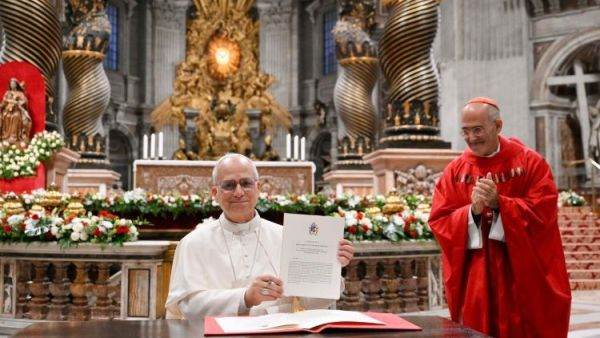Pope Leo XIV has called on Catholic educational institutions around the world to embrace technological progress with wisdom and courage, stressing the importance of digital teacher training and equitable access to education for all children, especially those in difficulty. The appeal was made in the apostolic letter "Drawing New Maps of Hope,” published on the occasion of the 60th anniversary of the declaration "Gravissimum educationis,” the document of the Second Vatican Council that redefined the mission of Catholic education in the world. The texts, published by Vatican News and the EFE agency, outline a clear direction for Catholic schools: an education anchored in values, but open to innovation and new technologies.
• "Technology is part of God's plan for creation”
Pope Leo XIV warns of the risk of "technophobia,” stressing that rejecting technological progress runs counter to the Christian spirit of trust and creativity. "Our attitude towards technology can never be hostile, because technological progress is part of God's plan for creation. What is important is not the tool, but how we use it,” the pontiff wrote. In his vision, artificial intelligence and digital media must be oriented "toward protecting dignity, justice and work,” being put at the service of man, not the other way around. The pope warns that "no algorithm can replace what human education does: poetry, irony, love, art, imagination, the joy of discovery and even learning from mistakes as an opportunity for growth.”
• Universities without hierarchies: "Fewer chairs, more common tables”
The document proposes a new model of university education based on dialogue, simplicity and community. The pontiff urges Catholic universities to overcome hierarchical rigidity and promote authentic collaboration: "We need fewer chairs and more tables where we can sit together, without unnecessary hierarchies, to touch the wounds of history and seek, in the Spirit, the wisdom born of the life of peoples.” The pope reaffirms the fundamental role of the family in the formation of children, emphasizing that Catholic schools collaborate with parents, not replace them: "The duty of education, especially religious education, falls to parents before anyone else.” At the same time, the pope criticizes the commercial approach to modern education, which tends to reduce the educational process to criteria of economic efficiency: "Where access to education remains a privilege, the Church must push open the doors and invent ways, because losing the poor is equivalent to losing the school itself.”
• Education - an antidote to fear and division
At the end of the letter, Pope Leo XIV describes education as "a mission of reconciliation in a fragmented world”, calling on Catholic communities to promote "nonviolent language, bridges, not walls”. "Catholic education has the task of rebuilding trust in a world marked by conflict and fear, reminding us that we are children, not orphans: from this awareness, fraternity is born”, states the pontiff. The letter "Drawing New Maps of Hope” is considered by analysts to be one of the most important doctrinal interventions of Pope Leo XIV in the field of education, continuing the tradition initiated by the Second Vatican Council (1962-1965). By focusing on the digital training of teachers, social inclusion and the humanization of technology, the text proposes a synthesis between faith and science, adapted to the challenges of the 21st century.













































